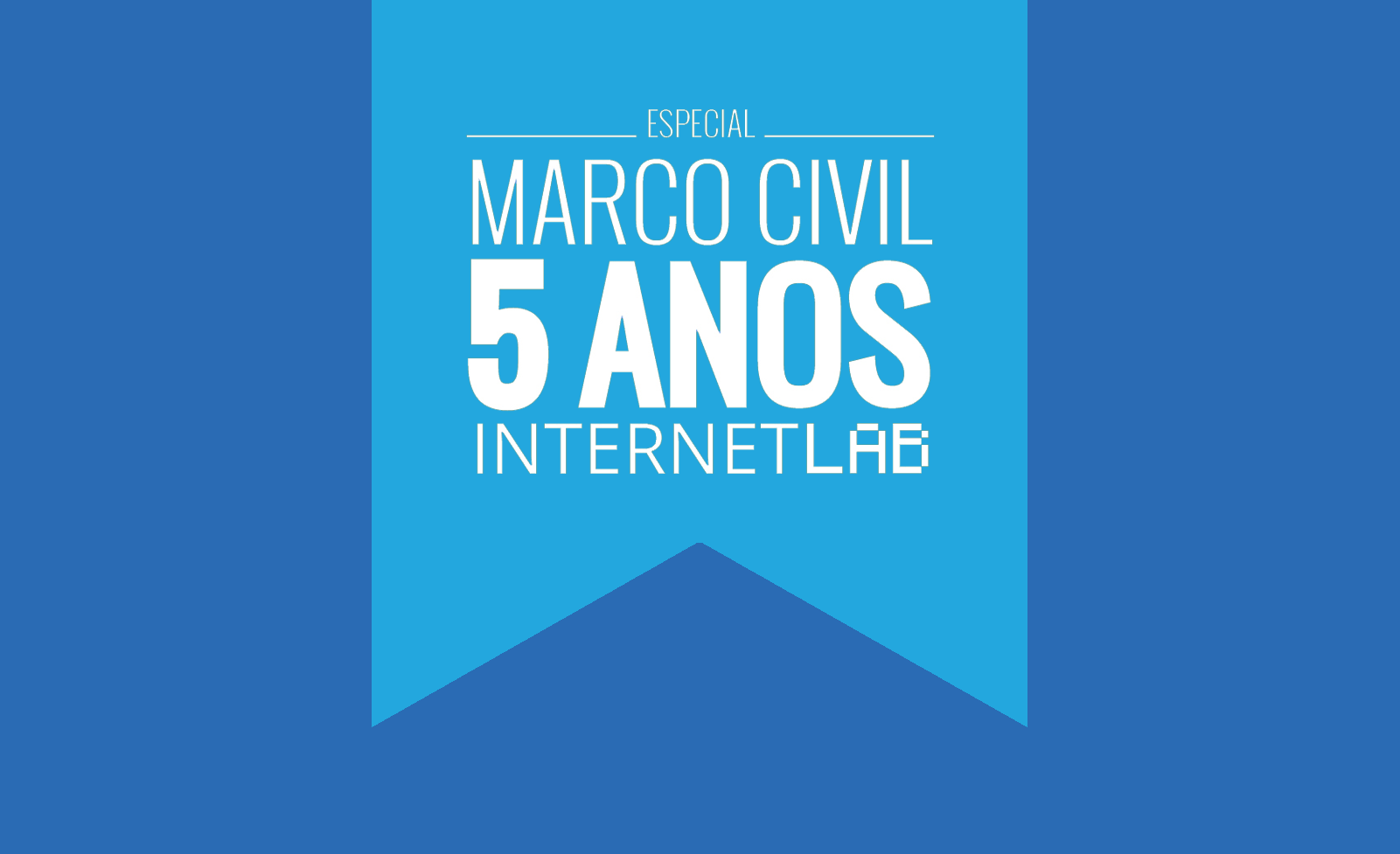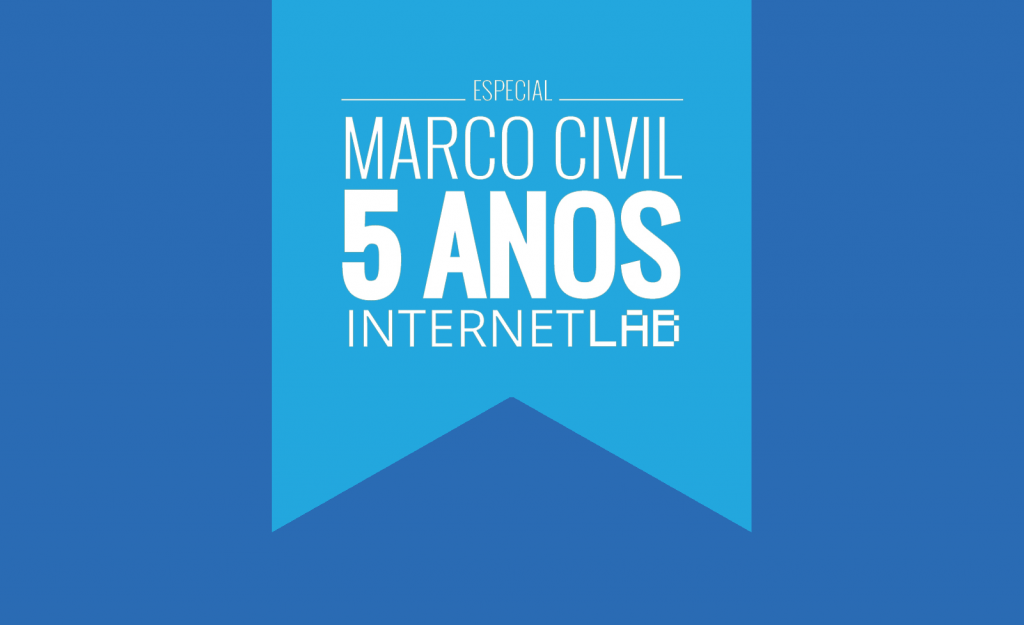
Marco Civil 5 Years Special: Why should we celebrate?
By Mariana Valente, Dennys Antonialli and Francisco Brito Cruz

On April 23rd, 2014, the Marco Civil da Internet, or, the Brazilian Internet Civil Rights Framework (Law 12.965/14) passed in Congress. Considered as a pioneer law regarding the protection of fundamental rights and principles on the Internet, the Marco Civil has inspired other countries and inaugurated a new regulatory model both in content and in form for the web.
Regarding content, the Marco Civil went up against a decade of legislative debates by proposing legislation for establishing principles and rights of users, a kind of “internet constitution.” The previous discussion had privileged initiatives for the control of the network and the criminalization of banal behavior by internet users from diagnoses that were in the majority guided by fear and by moral panic.
The result was legislation that established major precepts for companies and the Public Power, balancing interests and values to solve complicated juridical conflicts involving the protection of fundamental rights on the web. Rules about how internet user data can be obtained by authorities during investigations, about how internet companies should be liable for damage that stems from content created by third-parties on their platforms or, even, about the obligations of internet service providers (ISPs), for instance.
Considering its the form, Marco Civil’s innovations appear since its elaboration process. Intending to create consensus on topics that affected the lives of so many people of many different sectors, the process of creating and building the Marco Civil used the internet itself to expanded the grounds of the debates and mobilized the society. Before being sent to the Brazilian National Congress and even during its proceedings in the House, the original text, proposed by the Ministry of Justice, went through a public consultation stage on the internet, in which hundreds of citizens and organizations discussed and sensitized the Public Power toward changes in the draft.
Once passed, the Marco Civil da Internet has been studied with interest, enforced by courts, and generated some consolidated and controversial interpretations. In overview, it configured a lot of what we know as the internet in Brazil today and its impact on the lives of citizens.
Innovative, the Marco Civil was crucial for the development of the internet over the last five years. Its enforcement, however, was at times quite controversial, as in the case of application blocks or of the rules on net neutrality. Amidst these debates, the lives of Brazilians have become more and more digital. Thus, the internet in Brazil is living the Marco Civil Era — and the law’s fifth anniversary needs to be an opportunity to better understand the challenges, the gaps, and the conquests of these times.
To review this period, InternetLab is releasing the special Marco Civil 5 years. During the whole month of April 2019 we will release a series of materials made by our team — interviews, texts, discussions — about the different topics the Marco Civil has touched and impacted:
- Public Power and the Marco Civil: the guidelines for the State’s action brought by the Marco Civil, like the ones that prioritize participation tools, universalization of the access to the internet, rationalization of the public tenure and transparency;
- Principles and rights related to privacy, such as the demand for consent and a court order for the release of internet user data;
- Gender Violence, especially the impact of the Marco Civil provision that deals with non-consensual intimate images;
- The rule of net neutrality brought by the Marco Civil;
- Copyright, which was excluded from the Marco Civil’s provisions in its final moments in Congress. The enforceable rules to the protection of the rights of authors on the internet are still being defined by courts, and the news on the global discussion;
- Application blocking, sanctions, and applications of the Brazilian jurisdiction;
- Freedom of expression and the internet platform liability model for content created by their users.
Further Reading
Every new post of the Marco Civil 5 years special will have a “Further Reading” section, with links to articles, researches, and materials referring to the topic. In this first edition, we prepared materials about the process of the law’s elaboration and explain its general content.
“Brazil’s Internet Bill of Rights: A Closer Look” (2017). Organized by Carlos Affonso Souza, Mario Viola and Ronaldo Lemos, of Instituto de Tecnologia e Sociedade do Rio (ITS Rio).
***
Mariana Valente, Dennys Antonialli and Francisco Brito Cruz are InternetLab’s directors.